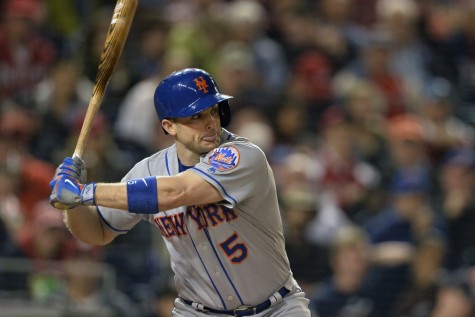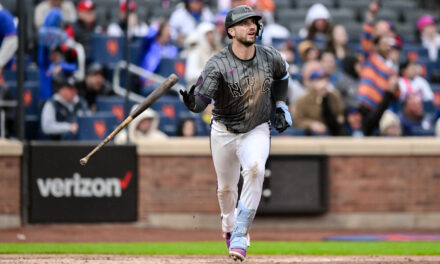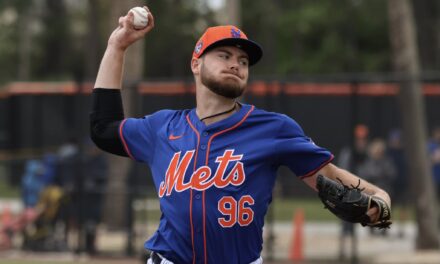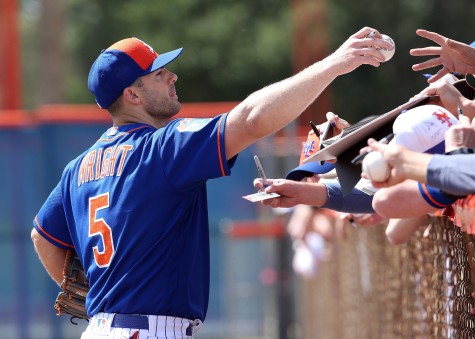
As the offseason plans take shape, there is one tremendous question mark upon which the future success of the franchise hinges. Will David Wright return in 2017 and live out the length of his contract through 2020?
The question is not if he will regain his past All-Star caliber level of performance, that would be unfair to ask of the veteran after last year’s showing. At most, an optimist could only expect him to appear in 100-110 games. In the small sample we saw in 2016, his once Gold Glove caliber defense was incredibly hampered. His range was limited, glove was fleeting, and arm was very weak due to his altered lowered arm angle which also decreased not only the crispness of his throws but the accuracy as well.
At the plate, his debilitated condition was even more apparent. In 137 AB’s, David struck out 55 times. That is more than once every three times up. He did, however, maintain his keen eye at the plate, walking 26 times (almost equal to his 31 hits) for a strange AVG/OBP split of .226/.350.
David Wright is due $20 million dollars each season in 2017 and 2018. He is due an eye popping $67 Million dollars over the final four years of his eight year deal that at the time he signed it was thought to be a sensible home town discount for a healthy franchise player. What it has become, is something that could cripple a crucial offseason spending plan.
As Joe D laid out here recently in a fantastic off-season payroll plan and projection, David’s $20 Million could end up becoming almost 12% of the Met’s available payroll resources next year despite the fact that he represents 2.5% of the 40 man roster. If he was his healthy self, continuing what was projected at its infancy to be a prolific career, that sum would not be as frightening. However, can the Mets afford to invest 12% of their payroll in what is essentially an unknown?
My answer is simple; No. They cannot.
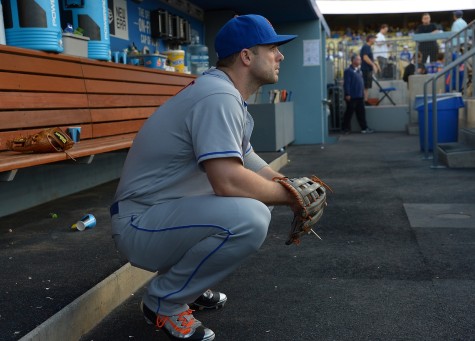
If David Wright stays inactive due to his neck and back injuries, the Mets would continue to collect insurance for 75% of his $20 Million and only be on the hook for $5 million. If he is activated, however, the Mets cannot collect insurance until he is deactivated for 60 days. The coverage is not retroactive, so if Wright is is activated for even one game, it could end up costing the Mets approximately 8$ million dollars depending on the payment structure of his contract.
The Mets have some incredibly important decisions to make regarding both qualifying offers for Neil Walker and how they are going to re-sign Yoenis Cespedes, who will likely opt out after his strong 2016 instead of staying in his current deal which actually would call for him to take a pay cut.
It is also a valid assumption that Walker will receive a QO. If so, between Wright, Walker, Flores, Cabrera, and Duda (if he is not non tendered), the WIlpons are looking at the face of a $60 Million dollar infield, without even counting Jose Reyes league minimum salary option that was exercised Friday.
With a third of what are expected to be the available resources being allocated to the infield, a stud young pitching staff climbing the arbitration ranks, and an aging Curtis Granderson due $15 million in 2017, it leaves little to no room to bring in Cespedes for a figure he will likely demand and deserve.
A little discussed but highly impactful payroll issue occurred at this past trading deadline. Trading Dilson Herrera for Jay Bruce could end up swinging the payroll number $30 million dollars for 2017. If Bruce is retained at $13 Million, and Walker excepts his QO at $17 Million, you are now carrying two players that would not have been in town in 2017 if Dilson did not depart.
Once again, this hurts the chances of bringing back Cespedes. An option could be to put the hopes of 2B in the hands of T.J. Rivera after a strong yet extremely limited 2016 campaign, but that would require the Mets to once again be relying on an unproved commodity, which has proved to be dangerous in the past.
The Mets will have much more payroll flexibility and much less roster uncertainty without the Captain. It is indeed sad but it is indeed true. The Mets have had a hopeful approach to most injuries in the past and it has not proved successful. It is time to stop ‘hoping’ and start being practical.
Incredibly, and to the chagrin of the fan base, the Mets organization would likely be better off in the long run if David Wright does not suit up again and retires instead like his friend Michael Cuddyer did last offseason. For his well-being and that of the team he loves.


